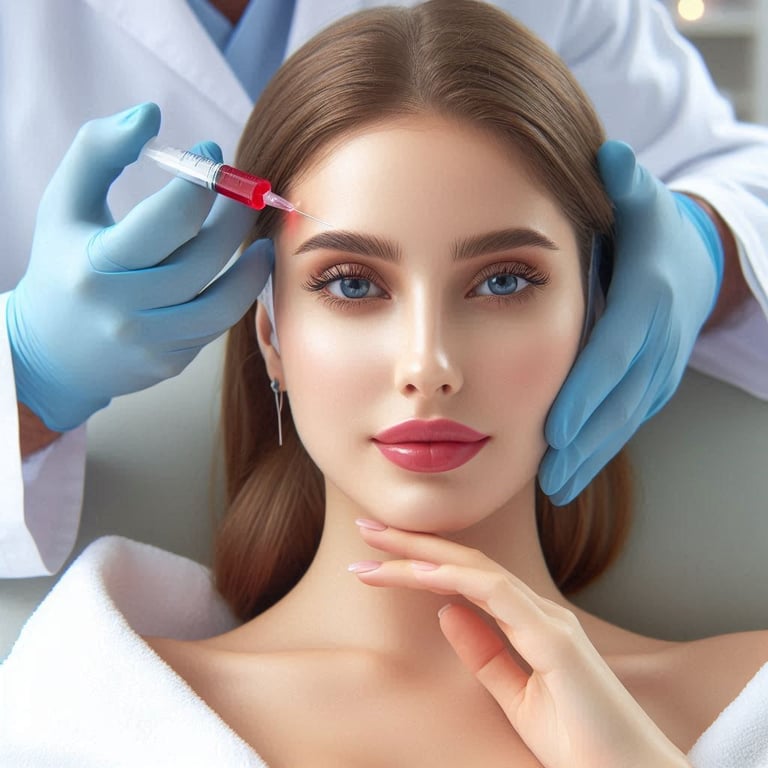Science of Hair Fall & Healthy Hair Tips
Is hair fall bothering you? Explore the science behind hair loss and discover effective diet tips for achieving healthy, vibrant hair. Whether you're aiming for long locks or simply want to enhance your natural beauty, this guide will help you transform bad hair days into fabulous adventures!
SKIN CARE TIPSWHATS TRENDING IN SKIN CARE


Introduction to Hair Fall
Hair fall, also known as hair loss/alopecia, can be a distressing experience for many individuals. Understanding its causes, identifying when it's a cause for concern, and exploring dietary and medical treatments can help manage this condition effectively. This post aims to provide comprehensive information on these aspects to help you address hair fall more knowledgeably.
Causes of Hair Fall
Hair fall can be attributed to various factors, including genetics, hormonal changes, medical conditions, and lifestyle influences. Here are some common causes:
Genetics: Hereditary-pattern baldness, also known as androgenetic alopecia, is a primary cause of hair loss in both men and women.
Hormonal Changes: Conditions such as pregnancy, childbirth, menopause, and thyroid problems can lead to temporary or permanent hair loss.
Medical Conditions: Diseases such as alopecia areata, scalp infections, and certain autoimmune disorders can cause hair to fall out.
Medications: Drugs used for cancer, arthritis, depression, heart problems, and high blood pressure are known to cause hair loss as a side effect.
Stress and Lifestyle: Physical or emotional stress, poor diet, and lack of sleep can contribute to hair fall.
When to Worry About Hair Fall
While it's normal to lose about 50 to 100 hairs a day, excessive hair shedding or noticeable thinning may indicate a problem. Consider consulting a Dermatologist if you experience:
Sudden or patchy hair loss: This could be a sign of an underlying medical condition like autoimmune medical condition. Not to get worried. The dermatologist will evaluate and allay your anxiety.
Thinning on the top of the head: This is a common pattern in genetic hair loss.
Full-body hair loss: Medical treatments like chemotherapy can cause this type of hair loss.
Scalp inflammation or scaling: This could indicate an infection or skin condition that requires medical attention.
Dietary Advice for Healthy Hair
Nutrition plays a vital role in maintaining healthy hair. Remember healthy hair and nail depict good nutrition status. Incorporating the following nutrients into your diet can help reduce hair fall:
Protein: Hair is made mostly of protein, so ensure you consume enough through sources like eggs, fish, and legumes.The normal protein requirement is 1gm/ kg per day.
Iron: Iron deficiency is a common cause of hair loss. Include iron-rich foods like spinach, lentils, and red meat in your diet.
Vitamins: Vitamins A, C, and E, along with biotin and folate, support hair health. Fruits, vegetables, nuts, and seeds are good sources.
Omega-3 Fatty Acids: Found in fish, flaxseeds, and walnuts, these promote scalp health and hair growth.
Common Medical Treatments for Hair Fall
Several medical treatments are available to address hair fall, depending on the underlying cause:
Topical Treatments: Minoxidil is an FDA approved over-the-counter medication applied directly to the scalp to stimulate hair growth. Consult Dermatologist for suitable preparation according to clinical condition.
Oral Medications: Oral Finasteride & Dutasteride are prescription drug that can help reduce hair fall and promote regrowth. Never take these medication without professional medical advice.
Procedures: Hair transplant surgery and platelet-rich plasma (PRP) therapy are options for more advanced cases of hair loss.
Therapies: Low-level laser therapy (LLLT) is a non-invasive treatment that can help reduce hair fall and improve hair density.
Take Home Message
Here are the key points to remember:
Identify the underlying cause of hair fall for effective treatment.
Consult a qualified healthcare professional/ Dermatologist if you experience sudden or severe hair loss.
Maintain a balanced diet rich in protein, iron, vitamins, and omega-3 fatty acids.
Explore medical treatments like topical solutions, oral medications, and procedures for severe cases.
Understanding the factors contributing to hair fall and taking proactive steps can help you manage and mitigate this common issue effectively.
Disclaimer: Always consult a board-certified Dermatologist for personalized advice.




